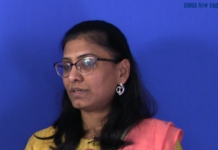Tejal Desai was named the 2003 INDIA New England Woman of the Year for her cutting-edge work in bioengineering as a professor at Boston University. At the time, the 31-year-old had recently been named in Popular Science magazine’s “Brilliant 10” list of the promising young scientists in the United States. She was BU’s top pick as it set out to spend millions to become one of the top U.S. schools in bioengineering.
Desai spent four years at Boston University from 2002 to 2006. She then moved to the University of California San Francisco where she still is. She is a professor in the schools Department of Bioengineering and Therapeutic Sciences. She is also head of the university’s Therapeutic Micro and Nanotechnology Laboratory, which is called Desai Lab.
Her lab has gained national attention for devising and demonstrating the feasibility of an implantable artificial pancreas to treat type 1 diabetes.
She is also credited with developing new ways to make implantable medical devices so small that their individual parts are the size of human cells. Such minuscule implants can overcome the limitations of conventional therapy to treat diabetes, kidney failure and other debilitating diseases.
A graduated of Brown University in bioengineering, Desai has a doctoral degree from the University of California Berkeley and the University of California San Francisco Graduate Program in Bioengineering.
She has also worked as an assistant professor at the University of Illinois at Chicago.













